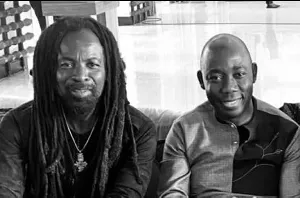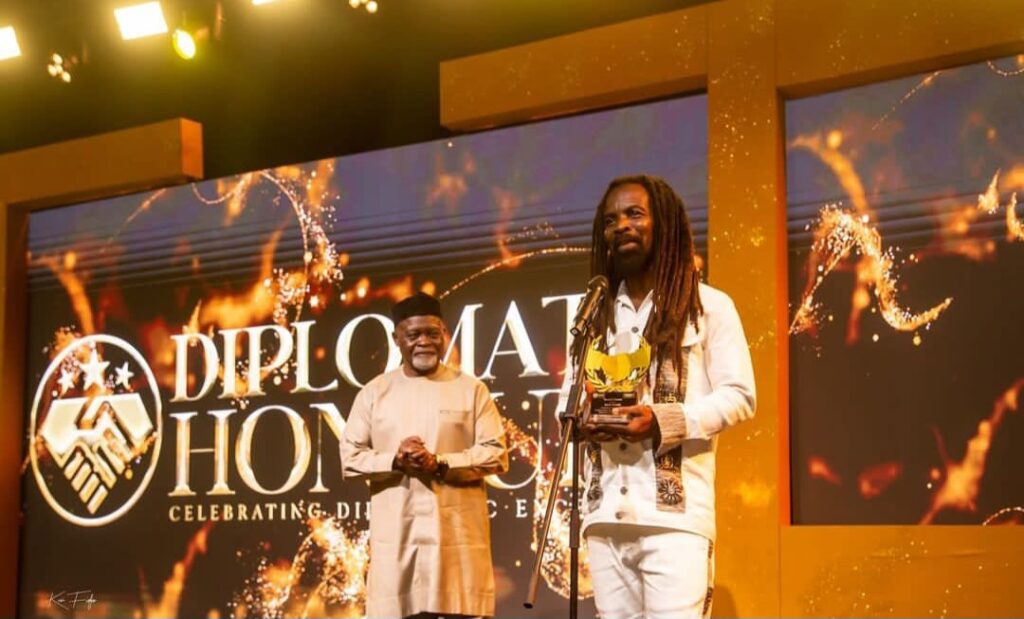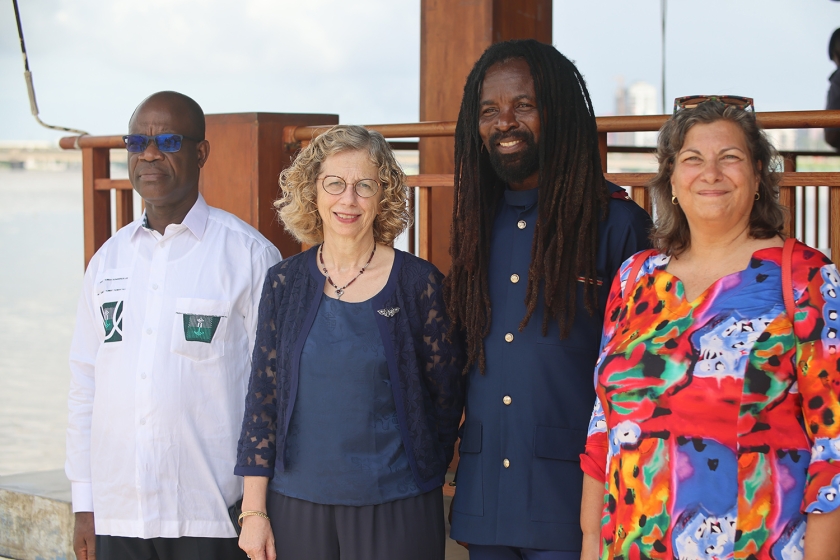On 8 March 2019, International musician, humanitarian activist and global ambassador Rocky Dawuni released Beats of Zion, the seventh album in his career of using art to push forward environmental and human rights agendas hand-in-hand.
Living between Los Angeles and Accra, Dawuni is a leading African voice on the international reggae scene, with his powerful songs addressing global issues ranging from women’s rights to education, and from poverty and health to clean air and climate change.
The Ghanaian-born singer and songwriter was designated a UN Environment Goodwill Ambassador for Africa at the Global Landscapes Forum in Nairobi last year, where he headlined a concert at the UN headquarters in front of a crowd of some 1,000 policymakers, business and finance experts, scientists, indigenous and community leaders, and media.
Prior to this album’s release, Landscape News caught up with the Afro-roots artist to hear about the process of creating his latest work and the role of music as a mobilizing force in making sustainable development “sexy” enough to earn the world’s attention.
What you have been up to since August last year when you received your UN designation?
It has been such an amazing journey. I came back to Los Angeles, and then I was invited to participate in the Global Climate Action Summit that was put together by Governor Brown in San Francisco. I was then invited to the UN General Assembly and participated in various environmental law initiatives, where I also had the opportunity to meet a mayor from Andhra Pradesh [state] in India who is doing some incredible sustainable initiatives and leading the country’s push to become a leader in sustainable economies.
My trip to India took me to every nook and cranny to meet other environmentalists on the ground and try to get as much information and knowledge to educate myself, to help me with this designation and do it in a way that I feel contributes tangibly to the world vision of the UN and the environmental agenda around the globe.
I then went to Geneva for the World Health Organization’s first conference on air pollution. And then there’s my work with the Clean Cooking Alliance. I am also working to launch a big tree-planting initiative within Ghana. So I really hit the ground running after the designation.
That’s quite a lot. How do you find the time to work as a dedicated globetrotting ambassador and as a musician?
You know, the thing is, music is part of the process of the service and the work that I do. Music always provides me with a platform, but in the process of doing all this work, my inspiration comes from the everyday people that I meet on the ground: the unsung heroes, the champions fighting for the earth, champions of innovation, champions of bringing people together. All of these are themes that eventually I seal into my music.
After everything, I took a block of time in the studio to finalize the record, and then the first single got released, and now we are getting ready to launch a full album on 8 March. But the thing is that the music and the release of the album also provide me opportunities with press and profile to push all the ideas that I have to contribute to the environment much more. So, it’s all coming together, and it’s all working hand-in-hand.


Wow! You know, it sounds ridiculous because I had not even made that connection. It was a day we chose because Ghana’s independence is on 6 March, so I wanted to launch a few days after the independence celebrations. But it falling on Women’s Day, I actually feel that is a beautiful synergy, because my work has been focused not only on social justice and environment but also women’s empowerment – not only within my country but also around Africa and the globe. So to launch an album that is about the empowerment of people…and elevating freedoms for everybody around the world on Women’s Day is definitely an honor. I think that when you follow your path… the universe usually works in alliance with you. So all the subtle things that sometimes you do not even think about, they add significance to a project.
What are your thoughts on music’s role in sustainable development?
Music, art and voices of artists are very critical to add to the conversations [on sustainable development], and also to provide the needed momentum and connection to the ideas being created, and communicate that to the general public. The voices of artists are very important, and the potential for music to really push the agenda is so immense.
If you look at all the major changes that have happened in history, a lot of times, even during the Civil Rights Movement, you have songs that became the driving force for a lot of the people who were marching. When you look at events like Live Aid that brought people together for the famine in Ethiopia, and even during the Vietnam War in America – musicians like Bob Dylan were the voices that provided the soundtrack that mobilized people to apply pressure to solve these issues.





